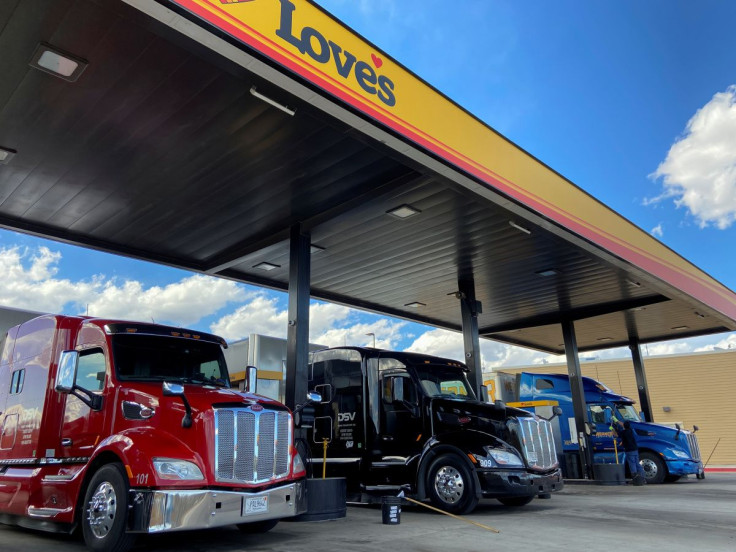U.S. Trucking Downturn Puts Pressure On Independent Operators -Uber Freight

A continued decline in on-demand trucking prices risks squeezing out tens of thousands of small operator-owned trucking companies that rushed into the market when rates were surging earlier this year, Uber Technologies Inc's head of freight said.
Surging diesel fuel costs and a leveling of U.S. consumer demand meant many owner-operator truckers would have to exit the industry if prices drop by a further 10% to 20%, Lior Ron, head of Uber Freight, said in an interview.
Rates in the on-demand spot market, under pressure since early March, have dropped a further $0.30 on a per-mile basis in April, faster than the typical seasonal decline, Uber data showed.
"The first casualties are the small guys unfortunately, because the operational costs are higher so they're the first the first ones in and the first ones to go out", Ron said.
The unexpectedly sharp downturn in the U.S. spot market - which is used to handle demand peaks not covered by traditional trucking contracts - has investors worry about wider economic repercussions if the trucking slump depends and spreads.
Lured by high rates and desperate pleas by shipping and carrier companies for more long-distance truckers, more than 20,000 drivers entered the market over the past few months, including 9,000 in February alone, Uber data showed.
The trucking industry was now looking at produce season, underway in Florida throughout May, and beverage season during the summer to determine the impact on spot rates and driver supply, Ron said.
Uber Freight, which acts as a middle man connecting truckers with shippers, last year bought logistics company Transplace for $2.25 billion. That acquisition boosted Uber Freight's revenue in the first quarter to around $1.8 billion, and reached profitability on an adjusted EBITDA basis for the first time.
© Copyright Thomson Reuters 2024. All rights reserved.



















